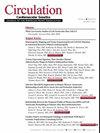Genes in the Basement, Postmortem Genetic Testing…and 3 (New) Realities.
引用次数: 0
Abstract
We all have a treasure trove of things—squirreled away in knick-knack drawers or long-forgotten boxes in the basement, storage lockers, and parents’ homes. Things we tell ourselves will someday have value if we just wait long enough. Every pathology department has things too—the glass slides and paraffin blocks of specimens long since diagnosed and discarded, all tucked away in the far recesses of hospitals and storage warehouses, waiting for a time to reach their full potential. A select few of these even manage to be resurrected each year, some for a retrospective analysis of one marker or another, others to settle a diagnostic or medicolegal matter. Most, however, sit idly in file cabinets and storage facilities, out of sight and largely forgotten, reminiscent of the final scene in Raiders of the Lost Ark. See Article by Baudhuin et al Those materials, however, still have great value. Among pathologists, this is not exactly a secret—archived slides and blocks have long been appropriated for developing new stains, defining diagnoses, and understanding disease pathogenesis. And when modern genetic testing methods arrived, many had visions of Jurassic Park-style moments, unlocking the secrets embedded not in amber but in paraffin. Unfortunately, most of the promise of such materials has languished. Genetic testing methods to date have largely focused on peripheral blood and carefully preserved tissues gathered from living patients. Applying the same techniques to the stuff …地下室的基因,死后的基因测试…和3(新)现实。
本文章由计算机程序翻译,如有差异,请以英文原文为准。
求助全文
约1分钟内获得全文
求助全文
来源期刊

Circulation: Cardiovascular Genetics
CARDIAC & CARDIOVASCULAR SYSTEMS-GENETICS & HEREDITY
自引率
0.00%
发文量
0
审稿时长
6-12 weeks
期刊介绍:
Circulation: Genomic and Precision Medicine considers all types of original research articles, including studies conducted in human subjects, laboratory animals, in vitro, and in silico. Articles may include investigations of: clinical genetics as applied to the diagnosis and management of monogenic or oligogenic cardiovascular disorders; the molecular basis of complex cardiovascular disorders, including genome-wide association studies, exome and genome sequencing-based association studies, coding variant association studies, genetic linkage studies, epigenomics, transcriptomics, proteomics, metabolomics, and metagenomics; integration of electronic health record data or patient-generated data with any of the aforementioned approaches, including phenome-wide association studies, or with environmental or lifestyle factors; pharmacogenomics; regulation of gene expression; gene therapy and therapeutic genomic editing; systems biology approaches to the diagnosis and management of cardiovascular disorders; novel methods to perform any of the aforementioned studies; and novel applications of precision medicine. Above all, we seek studies with relevance to human cardiovascular biology and disease.
 求助内容:
求助内容: 应助结果提醒方式:
应助结果提醒方式:


